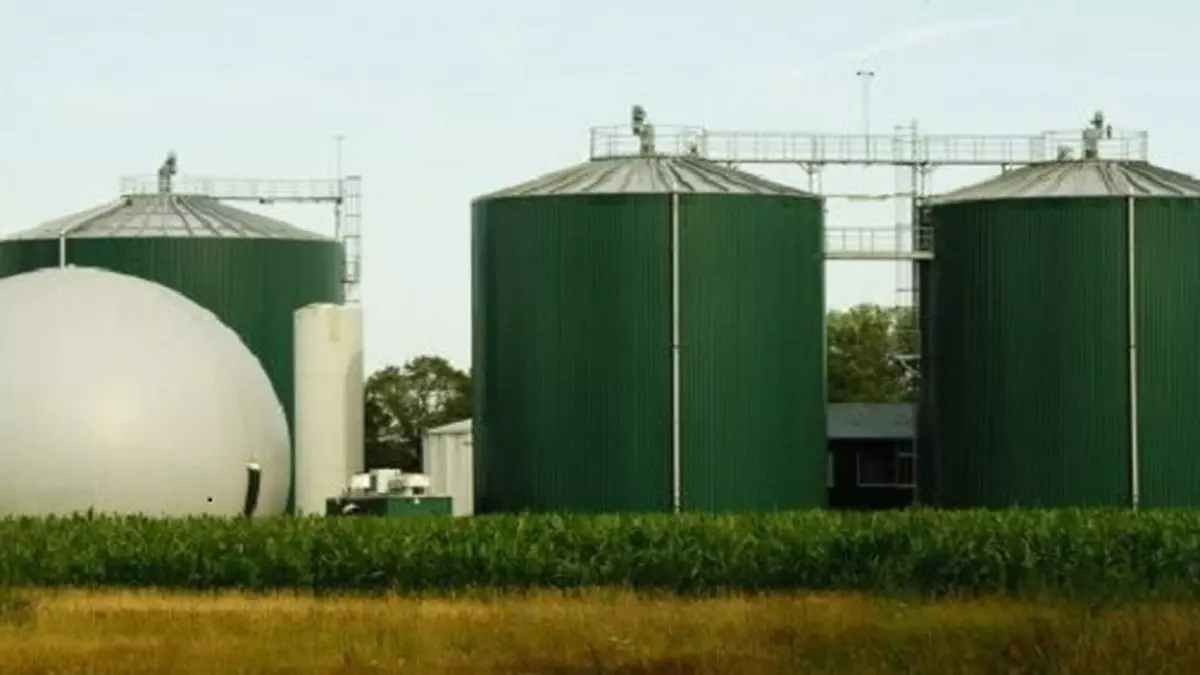How biogas is aiding environmental causes, boosting organic agriculture
Increasing global temperatures, rising sea levels, depleting natural resources, air pollution, and declining soil fertility are some of the effects of increasing Greenhouse gas emissions. The uncontrolled use of fossil fuels to generate energy for heating, lighting, electricity and transportation is the main cause of the release of greenhouse gases (GHG) into the atmosphere. Rotting of organic waste in landfills and improper application of animal waste are also responsible for greenhouse gas emissions.
The biogas industry can provide a comprehensive solution for managing waste, reducing greenhouse gas emissions, and fighting global warming. The environmental benefits of biogas and its high energy potential make it a sustainable alternative to fossil fuels. The biogas industry can play an important role in mitigation Climate change It helps create a circular economy by converting waste into energy for generating electricity, cooking, heating, fuel for transportation, and fertilizer for agriculture.
Reducing greenhouse gas emissions
The biogas industry can reduce global greenhouse gas emissions by 18 to 20 percent. Using biogas for various purposes, such as electricity generation, heat supply, and transportation, can significantly reduce emissions. Biogas digesters use anaerobic digestion to convert harmful organic waste into Renewable energy. Left to rot in landfills, this waste leads to massive emissions of harmful gases, such as methane and carbon dioxide.
Moreover, industry can also reduce greenhouse gas emissions from agriculture through efficient management of manure and agricultural waste. Digestive, a by-product of biogas digestion, can be used as an organic fertilizer to replace synthetic fertilizers, which account for 13 percent of agricultural greenhouse gas emissions.
Also read: ISMA welcomes budget proposals to promote clean and green energy
Reduce air pollution
Poor air quality has adverse effects on human health and the environment. Long-term exposure to poor air quality can cause cardiovascular diseases, respiratory diseases, cancers, etc. Emissions from vehicles, landfills, and the burning of fossil fuels for energy are the major causes of air pollution. Replacing coal with biogas for power generation could help reduce particulate emissions by nearly 40 percent. In the same way, replacing gasoline with biomethane can help reduce 60 to 80 percent of pollution from transportation.
Reducing pollution from landfills
Landfills are the most common method of waste disposal around the world. Decomposed and untreated organic waste in landfills can cause severe air, land and water pollution. This waste in landfills releases harmful toxins into the air, which can severely affect air quality in nearby areas and cause harmful diseases. Chemicals from organic waste seep into water resources in nearby areas as well as into aquifers. The biogas industry can help reduce the burden on landfills. Installing more biogas plants could address the problem of organic waste management, make cities cleaner, and reduce air, water, and land pollution.
Also read: “Getting ready” to drive renewable energy
Reducing black carbon from the use of wood fuels
About a third of the world’s population does not have access to clean fuels. They still use untreated wood and manure for heating and cooking. The use of non-renewable wood fuels for cooking and heating accounts for 2% of emissions each year. Moreover, combustion of biomass leads to indoor and outdoor air pollution and affects the health of those people, especially females, who are more exposed to these toxins. Establishing biogas plants in rural areas can provide access to clean energy and reduce carbon emissions. It can also help reduce deforestation as villagers no longer need firewood for their cooking and heating needs.
Improve soil health
Improving soil health is critical to ensuring food security for a growing global population. With the shrinking land available for cultivation, there is an urgent need for technologies that increase crop yields. Healthy soils are essential for producing healthy crops with high nutrient values. The use of synthetic fertilizers harms soil ecosystems and deteriorates soil health. Moreover, these chemicals pose health risks to consumers as they negatively affect water bodies and water tables.
The biogas industry can play an important role in maintaining and improving the soil ecosystem. Biogas plant digesters can be used as an organic fertilizer to increase soil organic matter, reduce nutrient run-off and soil erosion, increase water holding capacity, and improve plant growth. The biogas industry is a good example of a circular economy. Converts waste into renewable energy that can be used for multiple purposes. Even a by-product of the biogas industry can be used as a product Bio fertilizer To return the organic content to the soil and improve crop yields. The biogas industry helps address many environmental issues, such as global warming, air pollution, waste management, and soil health depletion.
(The author is the President of the Indian Biogas Association)
